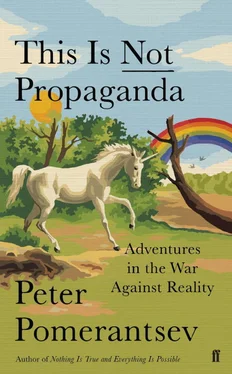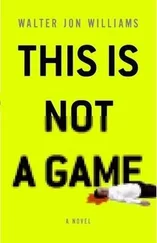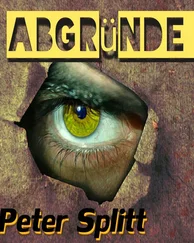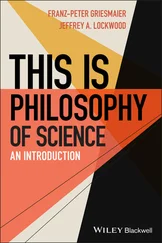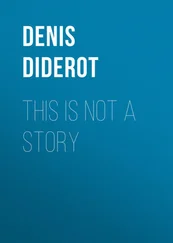I should add that I’m not an academic, nor is this an academic work. I’m a lapsed television producer, and though I continue to write articles and sometimes present radio programmes, I now often find myself looking at my old media world askance, at times appalled by what we’ve wrought. In my research I meet Twitter revolutionaries and pop-up populists, trolls and elves, ‘behavioural change’ visionaries and info-war charlatans, jihadi fanboys, Identitarians, meta-politicians, truth cops and bot herders. Then I bring everything that I’ve learnt back to the hexagonal, concrete tower where my office has its temporary home and shape it into sensible Conclusions and Recommendations for neatly formatted reports and PowerPoint presentations, which diagnose and propose ways of remedying the flood of disinformation, ‘fake news’, ‘information war’ and the ‘war on information’.
Remedying what, however? The neat little bullet points of my reports assume that there really is a coherent system that can be amended, that a few technical recommendations applied to new information technologies can fix everything. Yet the problems go far deeper. When, as part of my daily work, I present my findings to the representatives of the waning Liberal Democratic Order, the one formed in no little part out of the conflicts of the Cold War, I am struck by how lost they seem. Politicians no longer know what their parties represent; bureaucrats no longer know where power is located; billionaire foundations advocate for an ‘open society’ they can no longer quite define. Big words that once seemed swollen with meaning, words that previous generations were ready to sacrifice themselves for – ‘democracy’ and ‘freedom’, ‘Europe’ and ‘the West’ – have been so thoroughly left behind by life that they seem like empty husks in my hands, the last warmth and light draining out of them, or like computer files to which we have forgotten the password and can’t access any more.
The very language we use to describe ourselves – ‘left’ and ‘right’, ‘liberal’ and ‘conservative’ – has been rendered near meaningless. And it’s not just conflicts or elections that are affected. I can see people I have known my whole life slipping away from me on social media, reposting conspiracies from sources I have never heard of; Internet undercurrents pulling whole families apart, as if we never really knew each other, as if the algorithms know more about us than we do, as if we are becoming subsets of our own data, as if that data is rearranging our relations and identities with its own logic – or perhaps in order to serve the interests of someone we can’t even see. The grand vessels of old media – the cathode-ray tubes of radios and televisions, the spines of books and the printing presses of newspapers that contained and controlled identity and meaning, who we were and how we talked to one another, how we explained the world to our children, how we spoke to our past, how we defined news and opinion, satire and seriousness, right and wrong, true, false, real, unreal – these vessels have cracked and burst, breaking up the old patterns of how what relates to whom, who speaks to whom and how, magnifying, shrinking, distorting all proportions, sending us spinning in disorientating spirals where words lose shared meanings. I hear the same phrases in Odessa, Manila, Mexico City, New Jersey: ‘There is so much information, misinformation, so much of everything that I don’t know what’s true any more.’ Often I hear the phrase ‘I feel the world is moving beneath my feet.’ I catch myself thinking, ‘I feel that everything that I thought solid is now unsteady, liquid.’
This book explores the wreckage, searches what sparks of sense can be salvaged from it, rising from the dank corners of the Internet where trolls torture their victims, passing through the tussles over the stories that make sense of our societies, and ultimately trying to understand how we define ourselves.
Part 1 will take us from the Philippines to the Gulf of Finland, where we will learn how to break people with new information instruments, in ways more subtle than the old ones used by the KGB.
Part 2 will move from the western Balkans to Latin America and the European Union, where we will learn new ways to break whole resistance movements and their mythology.
Part 3 explores how one country can destroy another almost without touching it, blurring the contrast between war and peace, ‘domestic’ and ‘international’ – and where the most dangerous element may be the idea of ‘information war’ itself.
Part 4 will explore how the demand for a factual politics is reliant on a certain idea of progress and the future, and how the collapse of that idea of the future has made mass murder and abuse even more possible.
In Part 5 I will argue that in this flux, politics becomes a struggle to control the construction of identity. Everyone from religious extremists to pop-up populists wants to create new versions of ‘the people’ – even in Britain, a country where identity always seemed so fixed.
In Part 6 I will look for the future – in China and in Chernivtsi.
Throughout the book I will travel, some of the time through space, but not always. The physical and political maps delineating continents, countries and oceans, the maps I grew up with, can be less important than the new maps of information flows. These ‘network maps’ are generated by data scientists. They call the process ‘surfacing’. One takes a keyword, a message, a narrative and casts it into the ever-expanding pool of the world’s data. The data scientist then ‘surfaces’ the people, media outlets, social media accounts, bots, trolls and cyborgs pushing or interacting with those keywords, narratives and messages.
These network maps, which look like fields of pin mould or photographs of distant galaxies, show how outdated our geographic definitions are, revealing unexpected constellations where anyone from anywhere can influence everyone everywhere. Russian hackers run ads for Dubai hookers alongside anime memes supporting far-right parties in Germany. A ‘rooted cosmopolitan’ sitting at home in Scotland guides activists away from police during riots in Istanbul. ISIS publicity lurks behind links to iPhones…
Russia, with its social media squadrons, haunts these maps. Not because it is the force that can still move earth and heaven as it could in the Cold War, but because the Kremlin’s rulers are particularly adept at gaming elements of this new age, or at the very least are good at getting everyone to talk about how good they are, which could be the most important trick of all. As I will explain, this is not entirely accidental: precisely because they had lost the Cold War, Russian spin doctors and media manipulators managed to adapt to the new world quicker than anyone in the thing once known as ‘the West’. Between 2001 and 2010 I lived in Moscow and saw close up the same tactics of control and the same pathologies in public opinion which have since sprouted everywhere.
But as this book travels through information flows and across networks and countries it also looks back in time, to the story of my parents, to the Cold War. This is not a family memoir as such; rather, I am concerned with where my family’s story intersects with my subject. This is in part to see how the ideals of the past have fallen apart in the present and what, if anything, can still be gleaned from them. When all is swirling I find myself instinctively looking back, searching for a connection with the past in order to find a way to think about the future.
But as I researched and wrote these sections of family history I was struck by something else: the extent to which our private thoughts, creative impulses and senses of self are shaped by information forces greater than ourselves. If there is one thing I’ve been impressed with while browsing the shelves in the spiral-shaped library of my university, it is that one has to look beyond just ‘news’ and ‘politics’ and also consider poetry, schools, the language of bureaucracy and leisure to understand, as French philosopher Jacques Ellul put it, the ‘formation of men’s attitudes’. This process is sometimes more evident in my family, because the dramas and ruptures of our lives makes it easier to see where those information forces, like vast weather systems, begin and end.
Читать дальше
